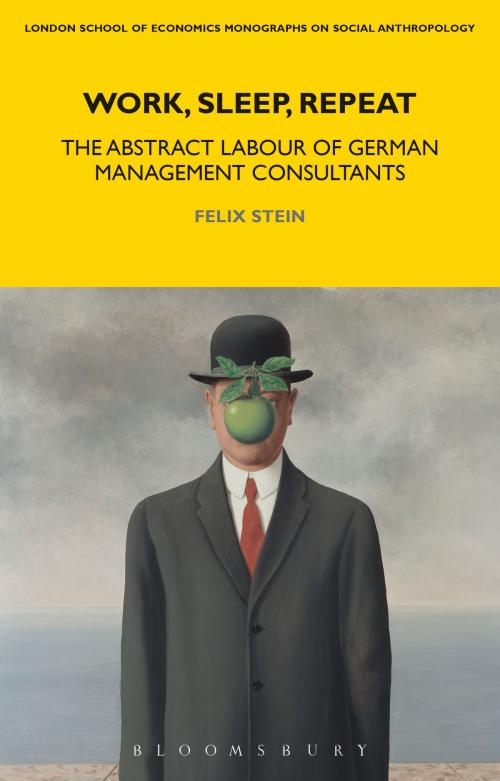Work, Sleep, Repeat
The Abstract Labour of German Management Consultants
Business & Finance, Human Resources & Personnel Management, Organizational Behavior, Nonfiction, Social & Cultural Studies, Social Science, Anthropology| Author: | Felix Stein | ISBN: | 9781350027817 |
| Publisher: | Bloomsbury Publishing | Publication: | October 5, 2017 |
| Imprint: | Bloomsbury Academic | Language: | English |
| Author: | Felix Stein |
| ISBN: | 9781350027817 |
| Publisher: | Bloomsbury Publishing |
| Publication: | October 5, 2017 |
| Imprint: | Bloomsbury Academic |
| Language: | English |
Work, Sleep, Repeat is a fascinating account of the work regime of German management consultants. Examining one of the most sought-after – and secretive – graduate professions, the book provides a first-hand account of the boardroom culture of Europe's strongest economy.
Analyzing how knowledge and power operate in this sector, Felix Stein explores a number of paradoxes. For example, while it is the job of management consultants to analyse the activities of other employees, they actually spend most of their time in luxurious seclusion away from them. In addition, despite having a strong sense of the importance of their work, consultants often find it difficult to explain to outsiders what it is they do.
The book addresses these and other paradoxes by arguing that consultants are engaged in abstract labour. Anthropologists have long struggled with the question of how to describe contemporary work regimes which do not produce anything tangible. Stein demonstrates that elite work is predominantly abstract, in the fourfold sense that it is epistemically removed from the object of analysis, emotionally detached from it, several steps away from the assumed sources of economic value creation, and increasingly hard to grasp. In doing so, he offers new ways to think about white collar work and elites in the 21st century and establishes the notion of 'abstract labour' as a key category in social anthropology.
Work, Sleep, Repeat is a fascinating account of the work regime of German management consultants. Examining one of the most sought-after – and secretive – graduate professions, the book provides a first-hand account of the boardroom culture of Europe's strongest economy.
Analyzing how knowledge and power operate in this sector, Felix Stein explores a number of paradoxes. For example, while it is the job of management consultants to analyse the activities of other employees, they actually spend most of their time in luxurious seclusion away from them. In addition, despite having a strong sense of the importance of their work, consultants often find it difficult to explain to outsiders what it is they do.
The book addresses these and other paradoxes by arguing that consultants are engaged in abstract labour. Anthropologists have long struggled with the question of how to describe contemporary work regimes which do not produce anything tangible. Stein demonstrates that elite work is predominantly abstract, in the fourfold sense that it is epistemically removed from the object of analysis, emotionally detached from it, several steps away from the assumed sources of economic value creation, and increasingly hard to grasp. In doing so, he offers new ways to think about white collar work and elites in the 21st century and establishes the notion of 'abstract labour' as a key category in social anthropology.















